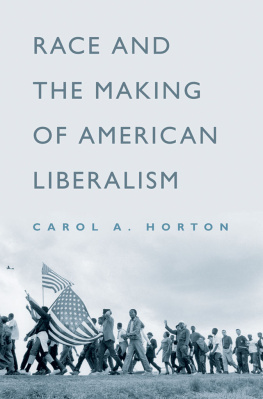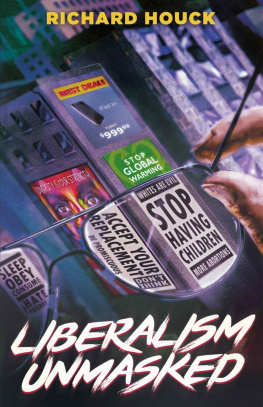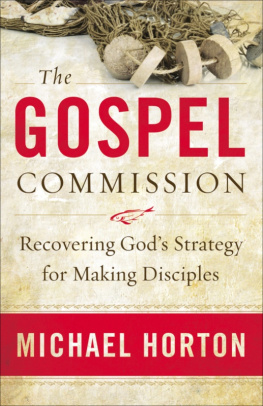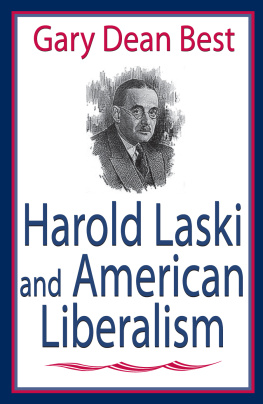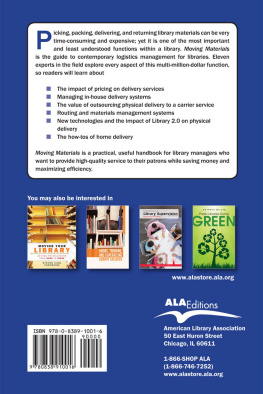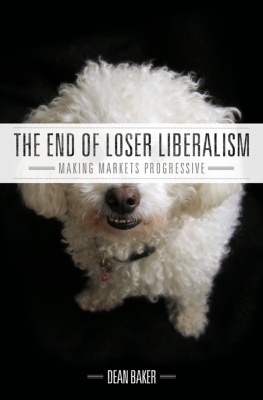Carol A. Horton - Race and the Making of American Liberalism
Here you can read online Carol A. Horton - Race and the Making of American Liberalism full text of the book (entire story) in english for free. Download pdf and epub, get meaning, cover and reviews about this ebook. year: 2005, genre: Politics. Description of the work, (preface) as well as reviews are available. Best literature library LitArk.com created for fans of good reading and offers a wide selection of genres:
Romance novel
Science fiction
Adventure
Detective
Science
History
Home and family
Prose
Art
Politics
Computer
Non-fiction
Religion
Business
Children
Humor
Choose a favorite category and find really read worthwhile books. Enjoy immersion in the world of imagination, feel the emotions of the characters or learn something new for yourself, make an fascinating discovery.
- Book:Race and the Making of American Liberalism
- Author:
- Genre:
- Year:2005
- Rating:5 / 5
- Favourites:Add to favourites
- Your mark:
- 100
- 1
- 2
- 3
- 4
- 5
Race and the Making of American Liberalism: summary, description and annotation
We offer to read an annotation, description, summary or preface (depends on what the author of the book "Race and the Making of American Liberalism" wrote himself). If you haven't found the necessary information about the book — write in the comments, we will try to find it.
Race and the Making of American Liberalism — read online for free the complete book (whole text) full work
Below is the text of the book, divided by pages. System saving the place of the last page read, allows you to conveniently read the book "Race and the Making of American Liberalism" online for free, without having to search again every time where you left off. Put a bookmark, and you can go to the page where you finished reading at any time.
Font size:
Interval:
Bookmark:
RACE AND THE MAKING OF AMERICAN LIBERALISM

This cover illustration from an 1879 edition of Harpers Weekly illustrates both the complexity and fluidity of racial categories and their relationship to critical social, economic, and political developments of the day.
Carol A. Horton

2005

Oxford University Press, Inc., publishes works that further Oxford Universitys objective of excellence in research, scholarship, and education.
OxfordNew York
AucklandCape TownDar es SalaamHong KongKarachi
Kuala LumpurMadridMelbourneMexico CityNairobi
New DelhiShanghaiTaipeiToronto
With offices in
ArgentinaAustriaBrazilChileCzech RepublicFranceGreece
GuatemalaHungaryItalyJapanPolandPortugalSingapore
South KoreaSwitzerlandThailandTurkeyUkraine Vietnam
Copyright 2005 by Oxford University Press
Published by Oxford University Press, Inc.
198 Madison Avenue, New York, New York 10016
www.oup.com
Oxford is a registered trademark of Oxford University Press
All rights reserved. No part of this publication may be reproduced, stored in a retrieval system, or transmitted, in any form or by any means, electronic, mechanical, photocopying, recording, or otherwise, without the prior permission of Oxford University Press.
Library of Congress Cataloging-in-Publication Data
Horton, Carol A.
Race and the making of American liberalism / by Carol A. Horton.
p. cm.
Includes bibliographical references.
ISBN-13 978-0-19-514348-5
ISBN 0-19-514348-5
1. United StatesRace relationsPolitical aspectsHistory.2. RacismPolitical aspectsUnited StatesHistory.3. Social classesPolitical aspectsUnited StatesHistory.4. LiberalismUnited StatesHistory. 5. United StatesPolitics and government.6. United StatesSocial conditions.7. Civil rightsUnited StatesHistory.I. Title.
E184.A1H656 2005
320.5130973dc222004024156
To Gary, Luke, and James
I have worked on this book on and off for longer than I care to state. Its correspondingly hard to find words that describe how I feel to be at the point where I can formally thank all of the individuals and organizations that have assisted and supported me along the way. But I am grateful, and there are many to thank.
Way back long ago in graduate school at the University of Chicago, I was fortunate enough to study and work with the late J. David Greenstone. His work on liberalism and American political thought set me on a path of inquiry that has sustained me throughout the course of writing this book. David exerted a formative influence on my intellectual development and I am grateful for it.
While it would require too long a list to acknowledge all of the individuals who influenced my thinking about race and American politics while at the University of Chicago, I would like to once again thank John Comaroff, Michael Dawson, Gary Orfield, and Cass Sunstein for serving on my dissertation committee and providing me with such varied and exciting examples of politically relevant scholarship. I would also like to specially thank Cass Sunstein for his continued support as I took on the project of turning my dissertation into a book. I feel very fortunate to have had the opportunity to connect with such a brilliant and socially engaged scholar.
After leaving the University of Chicago, I had the good fortune to join the faculty of Macalester College in St. Paul, Minnesota. Macalester provided me with an environment that valued excellent pedagogy, intellectual creativity, and civic engagement. I learned much while I was there and grew as both a scholar and a person. I would particularly like to thank Chuck Green and David Blaney for being such supportive colleagues, Peter Rachleff for deepening my knowledge of the American labor movement, and my many wonderful students for inspiring me with their talent, energy, and ideas.
In 1997, I made the difficult decision to leave academia so that I could live in the same city as my husband and start a family. Back once more in Chicago, the Center for the Study of Race, Politics, and Culture at the University of Chicago generously provided me with temporary office space to work on what would eventually become this book. Thanks to Evalyn Tennant for helping me out with this arrangement and for her comradeship throughout the years.
In 1999, while living with my husband and young son in Gttingen, Germany, the Soziologisches Forschungsinstitut (SOFI) provided me with an office in which I could once again work on this manuscript. Officials at the Georg-August-Universitt Gttingen also agreed to provide access to their library, which, to my good fortune, had an excellent collection of English-language social science materials. Many thanks are due to Professor Dr. Volker Wittke, Professor Dr. Michael Schumann, and Professor Dr. Martin Baethge for their generosity in extending these resources to me. I would also like to thank Ulrich Voskamp and Beate Henschel for their friendship and support, and Eva Bojemski for her help in taking care of Luke and for the opportunity to develop a relationship that crossed a formidable language barrier.
Upon returning from Germany, I was fortunate to be able to secure a book contract with Oxford University Press and to have Dedi Felman as my editor. Dedi and several anonymous reviewers provided me with wonderfully constructive criticism and insightful suggestions that enabled me to improve this book tremendously. I am particularly grateful to them for insisting that I develop my own voice and present my ideas as clearly and directly as possible. I am also indebted to Dedi for her patience and understanding through the course of an on-again, off-again writing process that had to be balanced with the birth of my second child and the development of a second career.
I would like to thank David Ericson, Tony Pinn, David Roediger, Rogers Smith, and Rick Valelly for reading and commenting on work that would eventuate in this book. Special thanks are due to Kelly Kleinman for helping me with my book proposal and for her friendship over the past seven years. Although they did not engage with me directly on this project, I would like to thank Marcia Kingslow and Robert Halpern for their friendship, collegiality, and support. The applied research that I have done with each of them on issues ranging from the building of womens health coalitions to the assessment of an after-school program initiative in Baltimore broadened my horizons and had an important impact on how I thought about the issues addressed in this book.
I would additionally like to thank my mother, Phyllis Horton, and my sister, Marion Horton, for their love and support over the years. Marion also helped me with my book proposal and provided needed assistance with child care at critical junctures in the writing process.
Words once again fail me when I try to think of a way to thank my husband, Gary Herrigel, for his love and support in the course of not simply writing this book, but living our lives and creating our family. We have been blessed with two amazing children, Luke and James. The love that we experience as a family has immeasurably deepened my experience of and appreciation for life. I am most grateful because I know that we share what words cannot express.
Next pageFont size:
Interval:
Bookmark:
Similar books «Race and the Making of American Liberalism»
Look at similar books to Race and the Making of American Liberalism. We have selected literature similar in name and meaning in the hope of providing readers with more options to find new, interesting, not yet read works.
Discussion, reviews of the book Race and the Making of American Liberalism and just readers' own opinions. Leave your comments, write what you think about the work, its meaning or the main characters. Specify what exactly you liked and what you didn't like, and why you think so.

